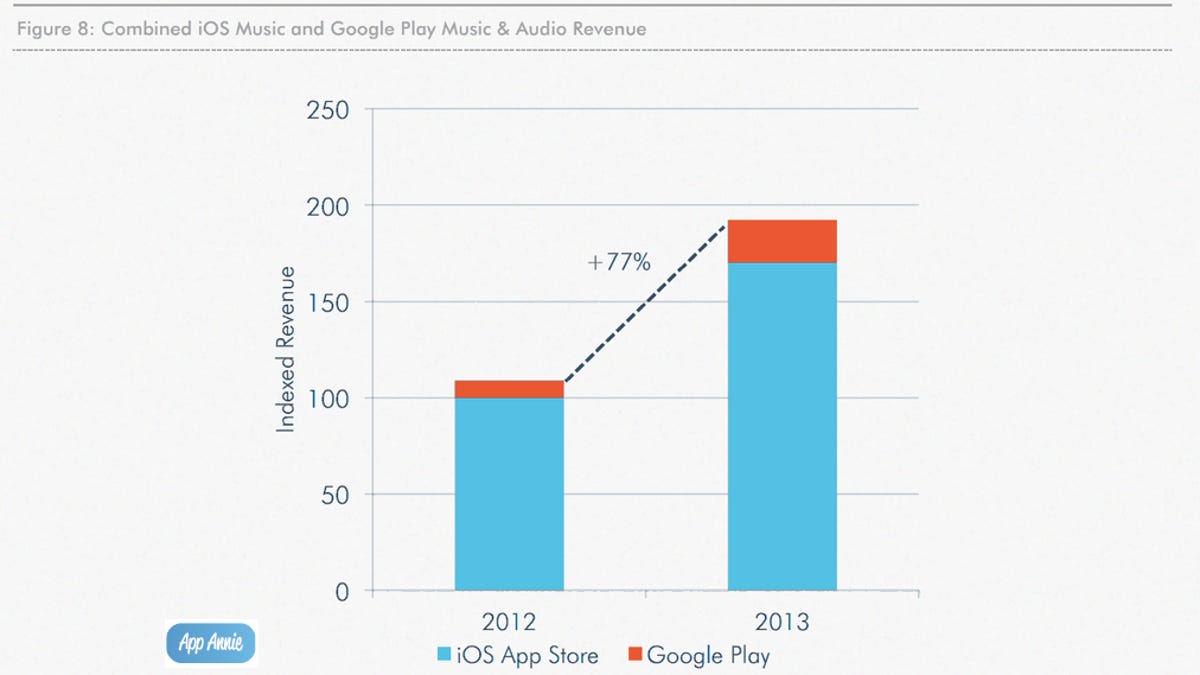Music apps pumped up the volume -- and dollars -- in 2013
Led by Pandora, revenue from music apps crescendoed more than 75 percent last year, and the category jumped to No. 3 in popularity, behind only games and social networking, according to App Annie.

An influx of new music apps may be raising the competition, but they're raising money as well.
App Annie, an analytics company that monitors app rankings, found music app revenue jumped 77 percent last year from 2012, in a review of app data. The category moved up to the third most popular type of app last year, after being ranked seventh in 2012. Social networking apps moved up the same number of steps in the rankings to the No. 2 spot, with games continuing to dominate the chart.
That music-app growth was led by Pandora. Worldwide, the Internet's top radio service was also the second biggest generator of revenue in the app universe, excluding games. It trailed only Line, the social messaging service ubiquitous in parts of Asia.
That's a pretty good showing, but the ranking is more impressive if you consider a few factors. Pandora is operational only in the US, Australia and New Zealand. The App Annie data primarily measures revenue from downloading a paid app and in-app purchases -- in the case of Pandora, which is free to download, that simply means subscriptions, which is Pandora's secondary source of revenue. The App Annie ranking doesn't take into account advertising revenue generated with an app, the company's real revenue engine.
Granted, had ad revenue been included in the rankings, Pandora would face stiffer competition from the likes of Facebook and YouTube.
See also: Spotify, Rdio, Beats Music, and more: How to get started with subscription music services
Competition in online music services is only increasing. Pandora continues to lead the market, but giants like Apple and Google added new services like iTunes Radio and All Access last year. Longtime players like Spotify and Slacker launched new features or shook things up with updates, and more have launched this year already: Beats' paid subscription-only service rolled out earlier this month. Google is said to be rolling out another subscription service through YouTube, and French hit Deezer is said to be exploring an expansion to the US.
Unsurprisingly, Deezer was one of the most popular downloads in France, where Shazam -- the music recognition service -- was also in the top five.
The App Annie review of 2013 also found messaging apps were evolving into social platforms that added e-commerce, books and music. Gamers are more often preferring their iPhones and Android devices to a Nintendo 3DS or Sony Vita: iOS and Google Play app stores both saw a surge in game revenue that lifted them above handhelds for the first time.

